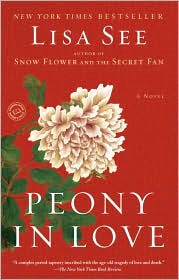It's never a good thing when my mom says, "Well, I have an idea for you." It usually results in me baking 700 cookies for a family picnic or chauffeuring my 15-year-old sister around the State of CT or watching her high-maintenance (but very cute!) little dog while she and my father are living it up on vacation. So when this was her response after my niece and nephew proclaimed their boredom in her presence while I happened to be watching them for a week, I pegged my niece and nephew on the arm, gave them a dirty look, and asked, "What are you two monkeys thinking?" Haven't they learned how to play the game by now? Talking to my mother requires a delicate balance between self-control and manipulation. When done properly, we can bamboozle her into doing anything. But as soon as she utters the words, "Well, I have an idea for you," you know you've lost the game. Thanks to Bobby and Kayla's "boredom," we were now the ones being bamboozled.
So my mother's fine plan was that we go to the library, return her books, and come home with another pile for her to read. Now, most of you are probably thinking, Well, that doesn't sound so bad. But if you know anything about Bobby and Kayla, then you know that an outing in public with them is no small feat. It becomes a test of my physical endurance, mental stability, and dignity. While they are running around the children's room, jumping on the furniture, locking each other in the bathroom, and taking joy rides in the elevator, I'm burning red with embarrassment, stifling the foul language that is about to pour out of my mouth, and restraining myself from grabbing them by the neck and dragging them out of there ~ all the while I'm trying and failing to pretend to look calm and relaxed as I have students and their parents coming up to me and saying, "Hello, Ms. C. Are you enjoying your summer so far?"
After about a half an hour of my own personal hell with these two crazy kids causing a raucous in the library, we finally left with my mother's new reads in my arms and the sound of the public cheering at our departure.
Peony in Love happened to be one of those books that I picked up for my mother between unlocking bathroom doors and chasing the elevator up several flights of stairs. If something about a book is able to grab my attention while chaos is erupting around me, then it has to be good. And, yes, it was good. It is so rich in Chinese culture, particularly in regards to their views on death and the afterlife and their views on women's roles in society. Chinese women in the late 17th Century had few liberties. Marriages were arranged by their fathers who sold their daughters for a hefty price. Women were treated as objects whose sole purpose was to produce male heirs and satisfy their husbands, including providing them with concubines. Young girls' feet were broken and bound to make them appear dainty and delicate and to keep them from walking too far out of the confines of their homes. They passed their time painting, embroidering, and serving their family. However, some women broke out of this traditional mold and became published poets and authors, an extremely rare accomplishment for women at the time. And some of these women purportedly died of "love sickness," a condition thought to be brought upon from the reading of a popular Chinese opera. This book is told from a "ghostly" perspective of a female character who dies from love sickness, but she instantly wins your heart over and allows you to appreciate your own ties to your own family ~ even if it involves a bit of chaos and a slick idea.



